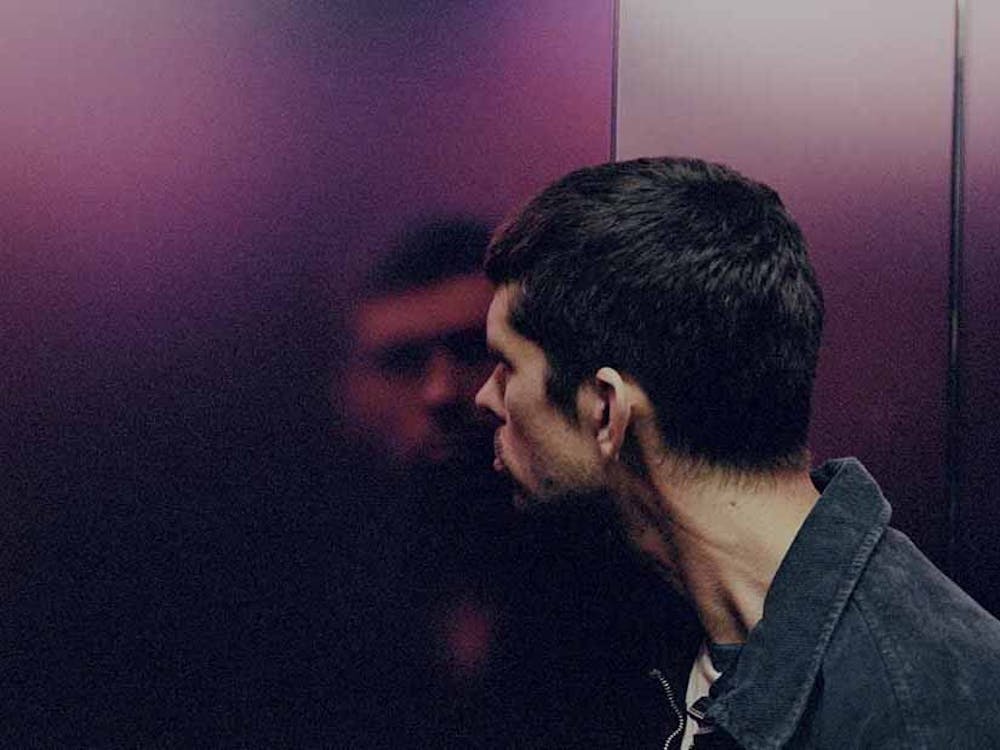Aneil Karia made his Sundance Film Festival debut with “Surge,” a psychological thriller that stars Ben Whishaw as Joseph, a troubled young man who lives an isolated life in London as an airport security officer. Joseph’s simmering disturbances, including his discomfort with social interaction and inability to assert himself, are catalyzed into a chaotic breakdown. The fallout takes him on a violent and metamorphic trip across the city. “Surge” is also Karia’s feature film debut after more than a decade working on short films and television. Karia’s short film “Work” was nominated for a British Academy Film and Television Award (BAFTA) in 2018.
“Surge” features a singular performance by Whishaw, with whom Karia collaborated with on 2013’s “Beat,” a similarly experimental short film. Over the course of 24 hours, Whishaw’s Joseph commits increasingly reckless actions that examine masculinity, isolation and what society deems acceptable. At a Q&A panel after the screening, Karia discussed Joseph’s unfolding and the message of “Surge.”
“Obviously most of us in the room haven’t had a day like that,” Karia said. “But there’s something universal about this kind of feeling that you’re experiencing life in a surface way, droning through and yearning for a deeper experience. We have very binary systems of what is normal and abnormal, and I was trying to make it a bit murkier.”
The Chronicle spoke with Karia about “Surge” and his filmmaking experience before the film’s Jan. 26 premiere at the Sundance Film Festival.
The Chronicle: People have compared “Surge” to films like “Joker” that focus on a disturbed male protagonist — do you have any comments on the comparisons or possible inspiration?
Aneil Karia: I’ve seen ‘Joker’ and it’s interesting that comparisons come up. I think they’re quite different in their own ways, but I can see how people might align them. It’s kind of an insane feeling for me that people are talking about movies like that because I’m not a great consumer of the DC/Marvel Universe and things like that. It’s interesting that this un-genre film, in many ways, has drawn parallels with a very huge film.
TC: Can you elaborate on what you mean by ‘Surge’ being an “un-genre” film?
AK: I’m not the world’s foremost expert in what constitutes genre, but I guess it’s just that it’s quite raw, naturalistic filmmaking, so it doesn’t necessarily have a film style that roots you in a particular genre. It’s got an electric pace at times, but it’s not a traditional thriller. It has some genre ingredients.
TC: For college students who aren’t studying film or people looking to get into the industry, how important do you think formal education in film is?
AK: I did go to film school but I didn’t study film. I studied something niche about television directing from the studio or gallery, Saturday night shows and things like that. Even though I went to film school and didn’t study film, it was an excellent experience. But I don’t think it’s essential. I think it’s what suits each person and if someone wants to go and get the fundamentals, it can be massively useful. But you have the desire and if you don’t have the money to go to film school, I don’t think you need to. I think you can learn what you need to learn by just making stuff, whether it’s on your phone or DSLR and just tap into the stories that interest you. As you do each project, it’ll get better.
Get The Chronicle straight to your inbox
Sign up for our weekly newsletter. Cancel at any time.

